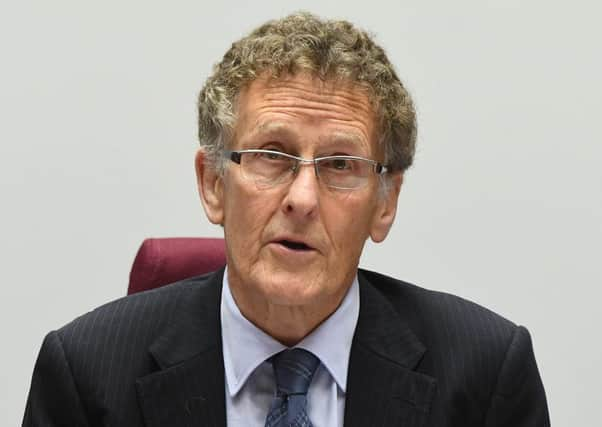RHI evidence can't be used against witnesses


The Director of Public Prosecutions (DPP) Barra McGrory has decided that testimony would not be used against those who gave it in criminal proceedings.
The inquiry led by retired judge Sir Patrick Coghlin is due to begin oral hearings in October.
Advertisement
Hide AdAdvertisement
Hide AdSir Patrick sought the written commitment from the Public Prosecution Service (PPS) to ensure that the possibility of potential criminal prosecution could not be used by anyone as a reason for not fully assisting the inquiry.
He said: “That undertaking has now been posted upon the website and will enable us to proceed in an open, transparent and efficient manner.”
The commitment covers oral evidence, witness statements and any document produced solely by that person to the inquiry. It excludes anyone giving false testimony.
The investigation into a saga which brought down the Executive will consider the alleged lack of response by the authorities to those voicing concerns as the budget for the grant encouraging businesses to switch to sustainable energy was quickly blown.
Advertisement
Hide AdAdvertisement
Hide AdIt will spotlight the role played by ministers, their special advisers and civil servants and any action or inaction as the cost spiralled out of control in late 2015.
Sinn Fein has said it will not return to devolved government with DUP leader Arlene Foster until the inquiry concludes but its chairman said he would not sacrifice rigour for speed and warned it could not accurately be predicted when his findings would be delivered.
More than 320,000 pages of documents have already been processed during preliminaries of the inquiry.
Sir Patrick told a second hearing in the Senate Chamber at Stormont that more than 320 notices had been issued to persons and organisations compelling the production of documents and witness statements.
Those receiving the notices include civil servants, government departments, former ministers and special advisers.